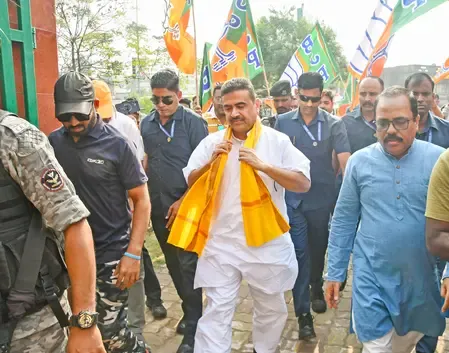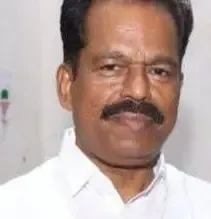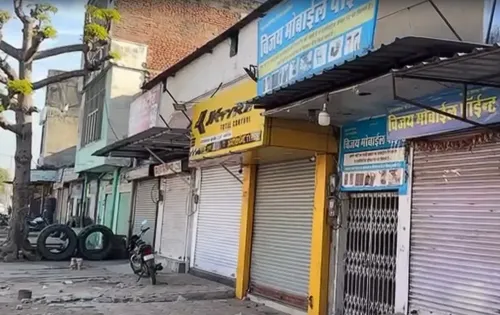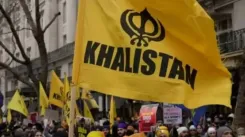Why has Congress Submitted an Adjournment Motion in Lok Sabha Regarding the Bihar SIR?

Synopsis
Key Takeaways
- Potential disenfranchisement of millions
- Concerns over documentation requirements
- Logistical challenges during the monsoon
- Legal implications regarding citizenship
- Need for urgent political discourse
New Delhi, July 22 (NationPress) Congress MP Manickam Tagore submitted an adjournment motion notice in the Lok Sabha to address the Special Intensive Revision (SIR) of electoral rolls in Bihar. The MP, representing Virudhunagar in Tamil Nadu, initiated the motion under Rule 56 of the Rules of Procedure and Conduct of Business in Lok Sabha.
Tagore, who serves as the Congress whip in the Lok Sabha, emphasized the importance of discussing a pressing issue of public interest concerning the Special Intensive Revision (SIR) of electoral rolls, which was initiated by the Election Commission of India (ECI) on June 24, 2025. He highlighted the significant implications of this revision on the democratic process, especially with the upcoming Bihar Legislative Assembly elections due by November 2025.
In his notice, Tagore urged the House to suspend its regular business, arguing that this matter poses a threat to the fundamental right to vote for millions of eligible citizens, particularly those from marginalized communities, and jeopardizes the integrity of free and fair elections.
Tagore outlined six compelling reasons to support his motion.
The first point addresses the substantial risk of d disenfranchisement. The SIR mandates that voters submit enumeration forms with strict documentation requirements, such as birth certificates or passports, to establish citizenship. In Bihar, where only 2.8% of individuals born between 2001 and 2005 possess birth certificates, this requirement disproportionately affects Dalits, backward classes, minorities, and migrant workers, potentially stripping millions of their constitutional right to vote.
The second concern relates to the opaque and arbitrary nature of the process. Reports from areas like Seemanchal indicate that voter names have been removed without prior notice or due process, leading to widespread fear and confusion. This lack of transparency undermines public trust in the electoral system and raises serious questions about the intent and implementation of the SIR.
The third point addresses the timing of the SIR, which Tagore argues is unsuitable, coupled with logistical challenges. The SIR was launched abruptly during Bihar’s monsoon season, facing logistical issues such as flooding and insufficient training for 100,000 Booth Level Officers, of which 20,000 remain unappointed. The Supreme Court has questioned the ECI’s decision to carry out this exercise so close to the elections, deeming it impractical and unnecessary.
The fourth point raises constitutional and legal concerns. Tagore argues that the ECI's emphasis on identifying illegal migrants exceeds its jurisdiction, as the determination of citizenship falls under the Ministry of Home Affairs. The SIR risks violating Articles 14, 19, 21, and 326 of the Constitution, as highlighted in a 1995 Supreme Court ruling and ongoing petitions from the Association for Democratic Reforms (ADR) and other stakeholders.
The fifth concern pertains to inaccessible documentation requirements. Tagore noted that the initial exclusion of widely accepted documents like Aadhaar, voter ID, and ration cards has rendered compliance difficult, with only 14% of voters submitting forms by early July 2025. Despite subsequent ECI clarifications allowing form submission without documentation, the process remains confusing and exclusionary for vulnerable communities.
In his final point, Tagore mentioned allegations of political manipulation. He stated in his notice, “The SIR has been labeled a politically motivated endeavor aimed at suppressing votes from communities less likely to support the ruling coalition, thereby undermining the fairness of the Bihar elections. Such actions erode the democratic principle of equal representation and free choice.”
Tagore has called for an urgent debate in the House regarding the SIR’s potential to disenfranchise millions, disrupt the electoral process, and violate constitutional safeguards.
The Congress MP urged for the immediate suspension of the SIR and a thorough review involving all stakeholders to ensure that no eligible voter loses their fundamental right to vote.
“I, therefore, request that the normal business of the House be adjourned to deliberate on this critical issue, and that the Election Commission of India be instructed to address these concerns to uphold the democratic values embedded in our Constitution,” he concluded.










